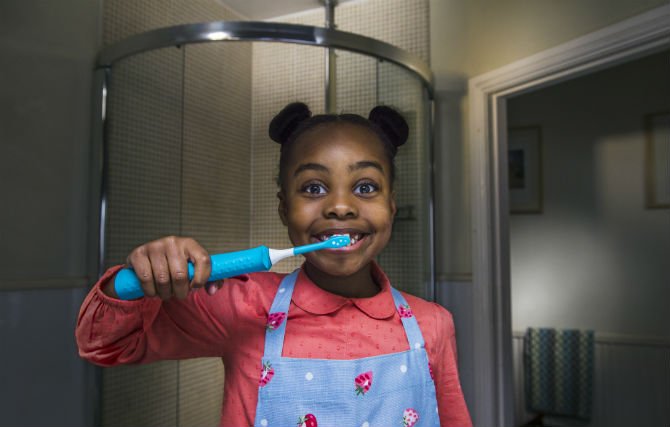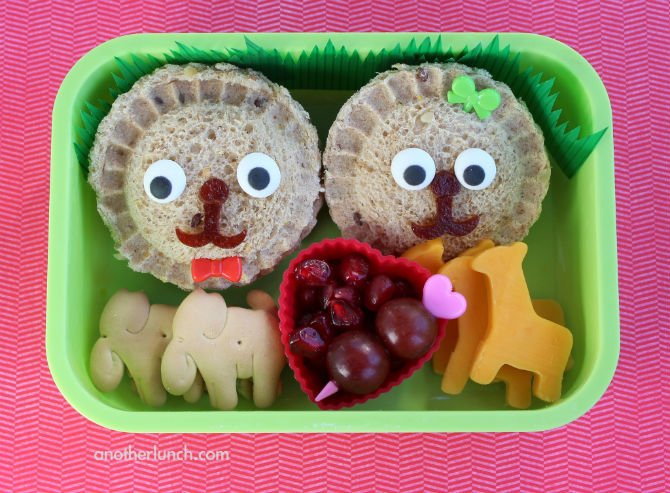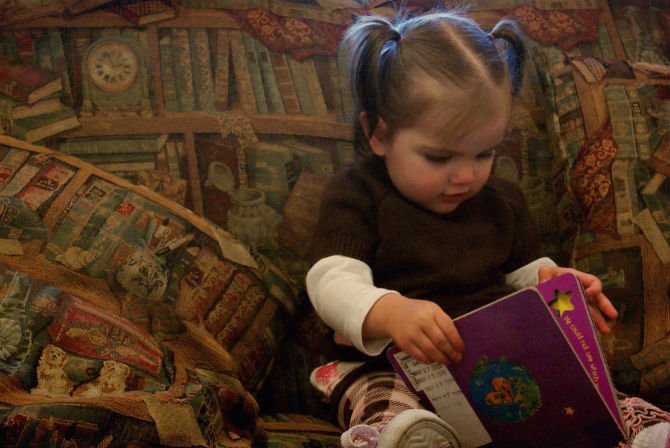I adore children. I love how their playfulness and innocence allows me to let my guard down a little bit and have some fun, too. When I was a nurse, there wasn’t a single day that went by when I didn’t have a laugh with a little one. And I wouldn’t have it any other way.
Through my experience, I learned first-hand how important it is for kids to develop good habits early on.
I always remember the cardinal rule: kids learn from what they see. Here are some easy ways that individuals can improve child health. (This list may seem parent-centric, but anyone who deals with youth should encourage these behaviors!)
1. Skip, jump, hop, run…play!
Time for play in this day and age seems significantly reduced for children. Kids seem to be spending more and more time indoors watching TV, playing on the computer and eating fast food and these things contribute to the ever-increasing obesity epidemic.
But it’s time to bring those habits back:
Play with your child, make it fun, get them involved in household activities like cooking and cleaning Play is important for optimal mental, physical, social and emotional well-being. Use whatever you have on hand: a rope, a cardboard box, chalk, soap bubbles, linen, washing baskets, music…anything! Play encourages creativity and imagination and gives them (and you) a chance to get messy and be a kid!
2. Put a smile on that dial
Taking good care of your child’s teeth (even baby teeth even though they eventually fall out) helps your child bite, chew food and even speak clearly. In the mornings and evenings prompt your child to brush their teeth, sing some songs with them and make it fun. Follow the 2 x 2 rule: 2 minutes of brushing, 2 times a day.
Brushing your teeth helps prevent cavities forming. Cavities develop when the bacteria in your mouth (plaque) combines with sugary foods (carbohydrates) causing it to become an acid. This acid eats away at the enamel (the outer protective coating of your teeth) and over a period of time, a hole in the tooth or a cavity forms. If the damage is just in the enamel, it is initially reversible but once the cavity eats through the enamel it can only be repaired by your dentist with a filling. This is one of many reasons why drinking water is so beneficial. It neutralizes the acid (from sugary food) that causes tooth decay and tooth erosion.

3. Strive for 5!
5 or more servings of fruits and vegetables per day is all a little one needs. Fruits and vegetables contain essential nutrients needed for growth and children that get well-rounded meals are less likely to become sick or overweight later on in life. If you have a fussy eater, try creative recipes, place food like cartoon characters to make it appealing and don’t give up trying to introduce a variety of foods into their diet. Persistence reaps rewards when kids start enjoying eating a variety of foods and start cooking for you (and not just spaghetti bolognaise!).

4. Knowledge is power
It’s never too early to start teaching your children and empowering them. Teach them to make healthy food choices themselves. Make it a game when shopping at the supermarket by ‘hunting’ for the whole-grain bread; heck, I love to play that game sometimes. Reading to your child is also one of the best activities you can do to stimulate language skills and build word-awareness. Reading creates an opportunity to bond and helps children practice listening and strengthen their memory. Finally, introduce them to the world that is a library. Not only do they have school holiday programs (read: free babysitting), but they present a unique opportunity for children to become interested in topics you hadn’t thought of.
5. Rise and shine…and eat!
With the many busy lifestyles of people today, breakfast can be overlooked. One in 5 American kids struggle with hunger and 4 out of 5 teachers say they teach kids who regularly came to school hungry . But let’s look at the word here: breakfast literally means breaking your fast. Your body is hungry when it wakes up from its slumber so nourish it with some breakfast. It can be easy as a hard boiled egg or a piece of toast, muesli or some fruit and yoghurt. This simple act can have a dramatic impact on academic health, metabolism and concentration throughout the day.
6. Talk in-depth to little girls
Our culture’s standard for talking to little girls is to give them a compliment on what they’re wearing, asking them to twirl around and telling them how cute/pretty/well dressed they are. This subconsciously teaches girls that their looks are noticed before their intellect. No wonder kids are starting to worry about their weight and their appearance at much earlier ages.
Instead of complimenting their looks, engage their brain. Ask them what their favourite book is and why, talk about some chemistry (what happens when you mix vinegar and baking soda?) or facts about the world. It will feel unfamiliar at first but try it and don’t buy into that false dichotomy that says we can either talk about beauty or books, but not both. Little girls love clothes, I know, but they can also love books too and it’s important to encourage passions in either without giving precedence to one.
Who says you can’t read Vogue and get high distinctions in exams?

7. Kangaroo care!
I had to put this one in because I’m from Australia and there are kangaroos hopping around everywhere and we ride them to school. (Not!).
This common misconception is one that I have encountered many a time since moving to New York and it makes me laugh every time!
Anyway, Kangaroo care is something entirely different. It is the act of holding a baby to promote skin-to-skin contact. The term comes from the snuggling of a baby being compared to the snuggling of a baby joey inside a kangaroo’s pouch. This contact (from either mothers or fathers) improves bonding, decreases baby stress levels, assists with thermoregulation (as newborns struggle with this) and improves appetite and subsequent weight gain.
Cuddles are the best aren’t they?

8. Don’t wait--vaccinate!
This is a topic I’m passionate about and I’ve left it until the end.
Vaccinations (immunizations) are a way of creating immunity to certain diseases using a small amount of the microorganism that causes the disease. Vaccinations are safe, cost-effective and not only protect the individual but others around them through something called herd immunity. In the western world, vaccination rates are so high (over 90%) that we rarely see outbreaks of diseases of the past such as tetanus, measles and mumps.
When I was studying for exams, the pictures in my textbooks were my experience of vaccine-preventable diseases. In the working world, it is a different thing. I have seen and dealt with patients who have been admitted with diseases that are vaccine-preventable. This is unacceptable to me and fires my passion for creating a world that is fully vaccinated.
And don’t forget that adults need vaccinations too. An immunised mother passes on her antibodies to her baby for the first few months of their life. Vaccination saves many lives and has an enormous impact on improving the health of children. Hey, even Elmo agrees! #vaccineswork
In developed and developing countries alike, deprivation hits children the hardest. The first few years of a child’s life are critical to their development and they continue to grow until they hit their late teens. Providing them with basic education, health-care, nutrition and protection increases their chances of reaching their full potential.
And that’s all we want for the future generation, right? To be happy and healthy.
What are some of your hints and tips to improve child health?
Before you do that, go to TAKE ACTION NOW and sign the petition to provide basic healthcare for all children and mothers.